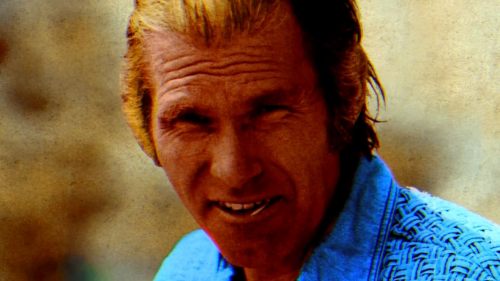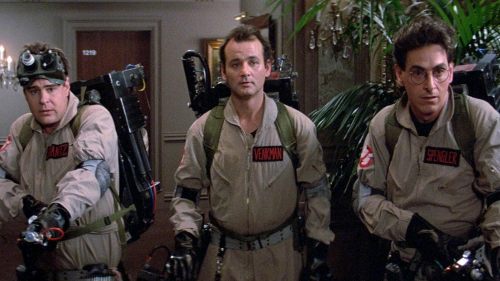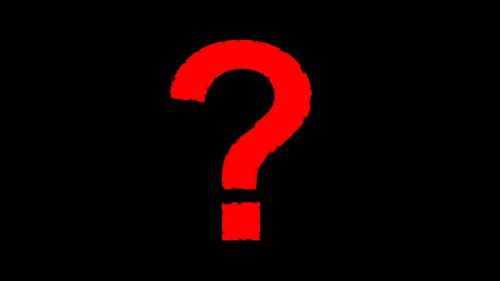Collins’ Crypt: Why Are There So Many CARRIE Movies?
I get testy when people refer to John Carpenter's The Thing as a remake - as far as I'm concerned, it's a more faithful adaptation of a short story that had previously been (sort of) used for another movie, and thus isn't any more deserving of the "remake" label than the 1994 Frankenstein is of the old Karloff film. When it's based on a book (or comic, or whatever), there's always the chance/hope that the filmmakers are looking to the source for their inspiration, not the previous adaptations, which is why "new version" or "update" is a better term than "remake". This is why I wouldn't get too upset if someone actually tried to make a new version of Jaws, or The Godfather... IF they were planning to do straight retellings of their respective novels. Free of the changes Coppola/Spielberg made for their landmark films, it might be interesting (in Jaws' case, it'd probably be more fun for whoever got to play Brody's wife), and if you were a fan of that source material who didn't care for the changes, it might be nice to see something more faithful realized on screen.
However, sometimes these movies are indeed remakes - there is no question that they are the product of someone who saw the original film version, but whether or not they read the book is still a matter of debate. Such is the case with the Carrie "series" - both the 2002 TV movie and the 2013 theatrical versions retained a few changes that Brian De Palma and Lawrence Cohen made for their classic 1976 film with Sissy Spacek. For example, in the book, the character of Sue Snell stays home from the prom and learns about it in progress - but the 2013 one has her going to it to warn Carrie about the impending prank (she's too late), a change first made for the Spacek one. And the 2002 version has Katharine Isabelle playing Tina Blake, a character from the novel more or less excised from the 1976 film, but it's clear that she was inspired by Norma (PJ Soles' character, who was basically just playing Tina with a different name), as she's introduced wearing a baseball cap similar to the one that Soles wore.
All three versions even leave out the same elements of King's book. In 1976 they pinned some of the changes on budget or FX limitations, something that wasn't as much of an issue for the big budget 2013 one (or even the TV movie, which has plenty of FX), so we can ignore action-driven moments that came and/or went. But why do both updates continue De Palma's tradition of changing Mrs. White's appearance? In the book she is described as fat and with white hair and glasses, yet both of the updates cast someone that fits the mold established by Piper Laurie in the original. Carrie's ability to project thoughts is also absent from all three versions, and in the book Mrs. Dejardin (changed to Collins for Brian De Palma's version, a change I have no qualms with) is only somewhat sympathetic to Carrie (at times she's as mean as the other girls), yet all three movies have her being a "mother she never had" type character to her - with each subsequent version making her more saintly than the one before. If they make it a fourth time, I'll half expect her to dive under the bucket of pig's blood in slow motion while shouting NOOOOOOOOOOOO!
Another, smaller difference - but still worth noting - is that all three movies made Carrie's revenge on her mother the climax, whereas in the novel Mrs. White is killed BEFORE Carrie takes her revenge on Chris and Billy (the two who spilled the bucket on her). All three movies have her kill them on the way home to confront mom, but in the book Carrie heads out to the place she was conceived (something she just learned about) and finds Chris and her boyfriend there. It's sort of like a bonus for her, and admittedly it works better in the movies (at least as far as the sequencing goes; the non De Palma versions have botched the confrontation with her mom itself). Her mom is the dominant "villain" and thus should be saved for last, especially if we want to retain any shred of sympathy for Carrie. Going back out and killing two more people, even if they deserved comeuppance, felt jarring to me (though admittedly I saw De Palma's film before I read the book so maybe it just ingrained itself as the "right way", not unlike someone who watches a few Friday the 13th sequels before they see the original will feel disappointment that Jason's mom is the killer), but it's interesting/strange that neither of the filmmakers who followed De Palma opted to try it King's way.
But most of the changes De Palma made are minor; compared to some other King adaptations (Lawnmower Man, The Shining, The Running Man) it's practically word for word the same. King was happy with it, the film was a huge hit and it even scored some Oscar nominations (not common for horror, as you know), so I think it's safe to say they got it right the first time, making the two remakes (and that's what they are) all the more questionable. For the TV movie they have SOME defense - it was intended to be a backdoor pilot for a TV series starring Carrie (Angela Bettis) and Sue Snell (Kandyse McClure), who end the film on the road together (the series would be Route 66 meets Thelma & Louise, I guess?). Low ratings and not many solid reviews ended that idea (I love that the film's Wiki page points out that as of 2015 there is no series, like someone is holding out hope every time the new fall schedule is announced), so all that's left is a slightly more faithful version of King's novel that still pales considerably next to De Palma's. I like that they brought back the flashback structure and used the bit where Carrie makes rocks from the sky nearly destroy their house (a scene that was absent from the 1976 film), but De Palma's shadow covers every inch of its cheap looking frame (did TV movies always look this garish? It often resembled an Unsolved Mysteries recreation). Again, De Palma's version didn't exactly go off the reservoir, so outside of the present day scenes at the police station, it hits the same beats in the same order, without nearly enough spark for it to set itself apart in any positive way.
Interestingly, it was written by Bryan Fuller, who is currently the king of re-adapting horror for television thanks to Hannibal. THAT is a show that escapes the shadow of its more famous cinematic version quite handily; no one thought Anthony Hopkins could ever be replaced, but Mads Mikkelsen is doing a damn fine job of proving that notion wrong. And they're doing so without being slavish to the source, making it equally exciting for readers and non-readers alike. But here he just plays it safe; there are a few modern touches (Carrie uses the internet to look up telekinesis, and in the film's best line, the "You should take Carrie to prom" idea is mocked as being something stolen from a Freddie Prinze Jr movie) but otherwise it's the same ol' thing, and nearly everyone's performance pales in comparison to their predecessors. Angela Bettis is interesting and great in the right roles, but here she plays Carrie sort of like a meth addict, and doesn't pass as high school age as effectively as Spacek (both of them were in their late 20s at the time of shooting), while Patricia Clarkson splits her time between impersonating Piper Laurie and coming off like she's dying of cancer or something. Isabelle is fun as almost always, and I always like Kandyse McClure (who would make it up to King later by starring in the Children of the Corn update that was more faithful to his original work, i.e. it kept the bummer ending) but it's not enough to justify the 2+ hrs it takes to watch. It's also not scary at all, but that's probably not even worth mentioning for a modern day TV movie.
That said, it's still better than the 2013 remake, which screwed up just about everything. Carrie was played by an actual teen for once, but Chloe Moretz (already a veteran of unnecessary remakes, having starred in Let Me In) looked like she was making fun of Magneto when it came time for the prom massacre, waving her hands around like a jackass, with CGI fire and the like matching the unintended hilarity. Julianne Moore was so far over the top as Mrs. White I'm not sure how she managed to come back down in time for her next movie, and while Judy Greer was great as Mrs. Dejardin (the best reason to see the movie, really), the girls were an interchangeable lot; even Chris barely stuck out more than any of the random others. And it relied on De Palma even more than the TV one - again the flashback element has been excised, and even when it seems they will do something different they get cold feet and stick to what we've already seen. For example, the girls are in the pool before the locker room scene - why not let it all play out in the pool? Even in 2002 the idea of all the girls showering together was dated; in 2013 it's downright laughable (it still happens, but it's no longer the norm like it was in 1976 - it doesn't quite work to set Carrie up as the weirdo in a situation that's going to look strange to the average viewer). And it does the crucifixion death for Mrs. White, in case by that point we still had any doubt that we were watching a movie that was just copying De Palma's even when it didn't have to (so much that Lawrence Cohen was credited on the film for his 1976 screenplay - this is not usual for something based on a book). Oddly, director Kimberly Peirce and screenwriter Roberto Aguirre-Sacasa both claimed that they were going back to the book for their film, so either they are stone cold liars or the producers inexplicably forced them to copy the other movie more often than necessary.
What's puzzling about both films is that they came after a legit and direct sequel that tanked, which should have been a clear sign that Carrie White shouldn't be a character that's been played by three or four women at this point. 1999's The Rage: Carrie 2 failed to even match its $21m budget when released in the spring of that year (i.e. prom time, though there's no prom in the film), so I'm not sure why this didn't halt plans for a remake/possible TV show or why MGM opted to try again 10 years later after the remake cycle had died down. It's hardly a great movie, but The Rage is the best of this lot - mainly because it's actually doing something different. While the two remakes kept Carrie as the frumpy, friendless weirdo with a domineering mother, our heroine Rachel is a "goth girl" of sorts, still an outcast, but able to maintain a friendship, talk to other students without cowering in fear (she even holds her own against the douchey jock that inhabits the John Travolta role here), and has a different kind of shitty home life: her foster parents don't care about her. Her mom is in a mental institute, and the foster parents are hoping she gets better not for Rachel's sake, but just so they can get rid of her (though they will miss the monthly checks). I mean, it all ends up in the same fashion: some of the popular kids treat her as an equal, but then they play a horrible prank on her at a social gathering (a house party this time) and she freaks out, killing them all with her telekinetic powers, but at least the journey getting there is very different.
It also offers us a chance to see a character grow - Amy Irving returns as Sue Snell, working as a school guidance counselor. She knows Rachel has the same affliction Carrie White had, and while this leads to some hokey "family curse" exposition that reeks of '90s horror, it's still interesting to catch up with a character 23 years later without it feeling too forced. In some ways it fits in with the spirit of the novel; it was left out of the 1976 film but in King's novel Snell went on to write a book about the situation as a sort of cautionary tale, so it makes sense that the character would bend over backwards to prevent it from happening again when she encounters someone displaying Carrie-esque tendencies. And while it's dated in spots (Rachel and her eventual boyfriend, Jason London, bond over their shared love of the band Garbage), it actually modernizes the story better than its later counterparts, with the further splitting of high school roles (Rachel would probably sneer at Carrie, if they had existed at the same time) and briefly diving into the growing issue of athletic privilege, something that wasn't much of a problem in 1976. The funny thing is, the gap between the original and this Carrie is the longest of the four film series (23 years; the TV movie came along three years after this and then there were only about ten until the Chloe Moretz version), so they'd probably be OK with cribbing more of the original's plot points and offering a hybrid sequel/remake (not unlike the 2011 The Thing, which was technically a prequel but copied Carpenter's film beat for beat), but they stick to their own path and deliver a real sequel. Not a great one, mind you, but of the three post-De Palma movies with "Carrie" in the title, it's the only one where the screenwriters were putting any effort into the proceedings. Splatter fans should be happy with the wait for the carnage too - I'm not sure if it really fits this particular story but I doubt many people expected to see a double impalement (one victim on each side of a door!) or a castration when they sat down for this overdue followup to an Oscar-nominated film.
So I ask again - why are there FOUR Carrie films? It's not like franchising Stephen King has proven to be very lucrative - Creepshow 2 was a mild success but every other theatrical attempt at following up a King hit (Pet Sematary, Lawnmower Man, and Children of the Corn, plus this) was a disappointment at best - Lawnmower Man 2 was particularly embarrassing, with a mere $2.4m gross (the original grossed $32m and was a huge video hit). Mangler followups (yep, there's technically a Mangler trilogy) and the never-ending Corn sequels starting with COTC3 all went direct to video, and if you mention the few other remakes like Shining and Trucks you're likely to be laughed out of the room. Plus, the template - outcast gets revenge after being horribly pranked - is something that's been aped numerous times for any number of slasher films (Terror Train, Valentine) and other supernatural tales, such as 1981's Evilspeak, in which Clint Howard learns witchcraft and uses it (and possessed pigs) to exact revenge on his tormentors. They all pale in comparison to Carrie, but you can at least give them points for trying, something the folks behind the two remakes haven't managed to do. It still doesn't answer my question though, so feel free to toss your own theories out (preferably more interesting than "money"). Meanwhile, if they ever decide to make a feature version of the stage musical (which itself had multiple incarnations), I'd be excited, but otherwise I hope I never have to update this article with yet another retelling of the sad story of Carrie White.
...though I'll at least consider a Rage 2: Carrie 3.
The TV version and The Rage: Carrie 2 make their Blu-ray debut next week in a double feature set from Scream Factory. Both have commentary tracks, and The Rage has some deleted scenes and an alternate ending, albeit with forced director commentary. As it is a TV movie that aired full frame and in standard definition, Carrie '02 looks a bit weird, but The Rage's transfer is terrific.



